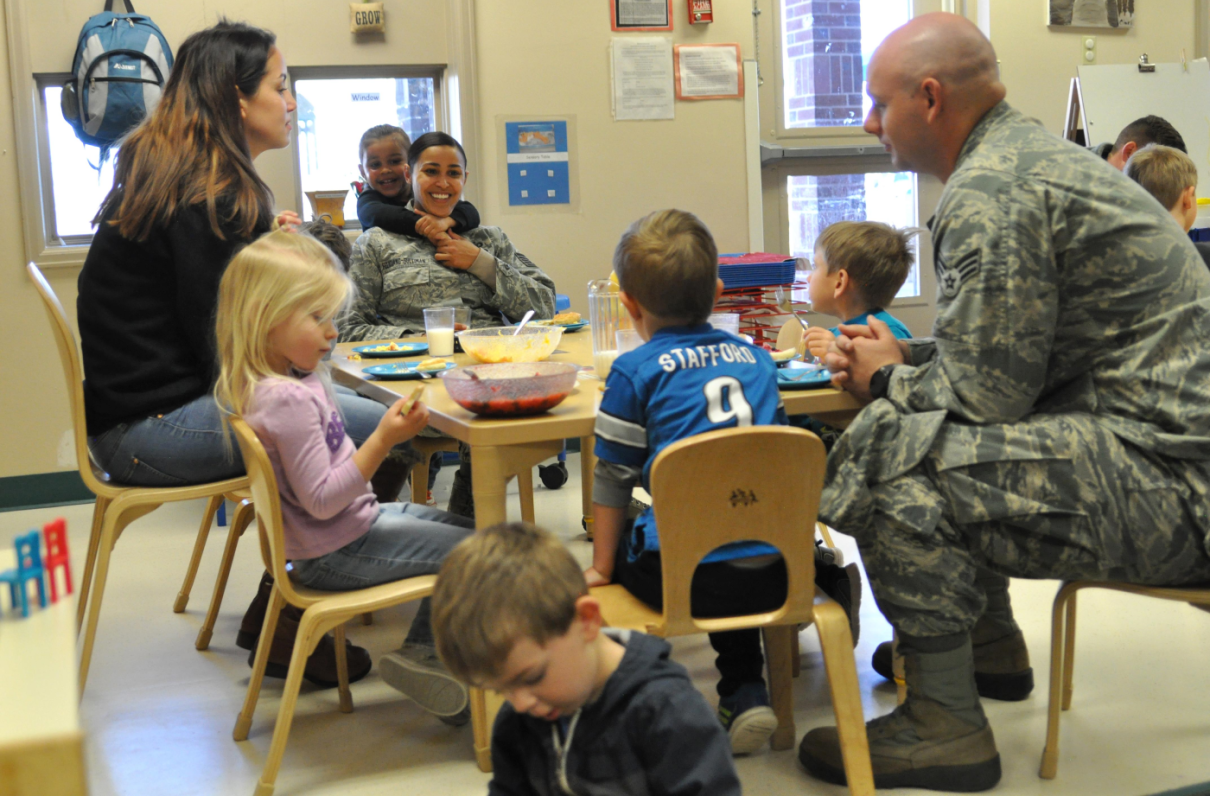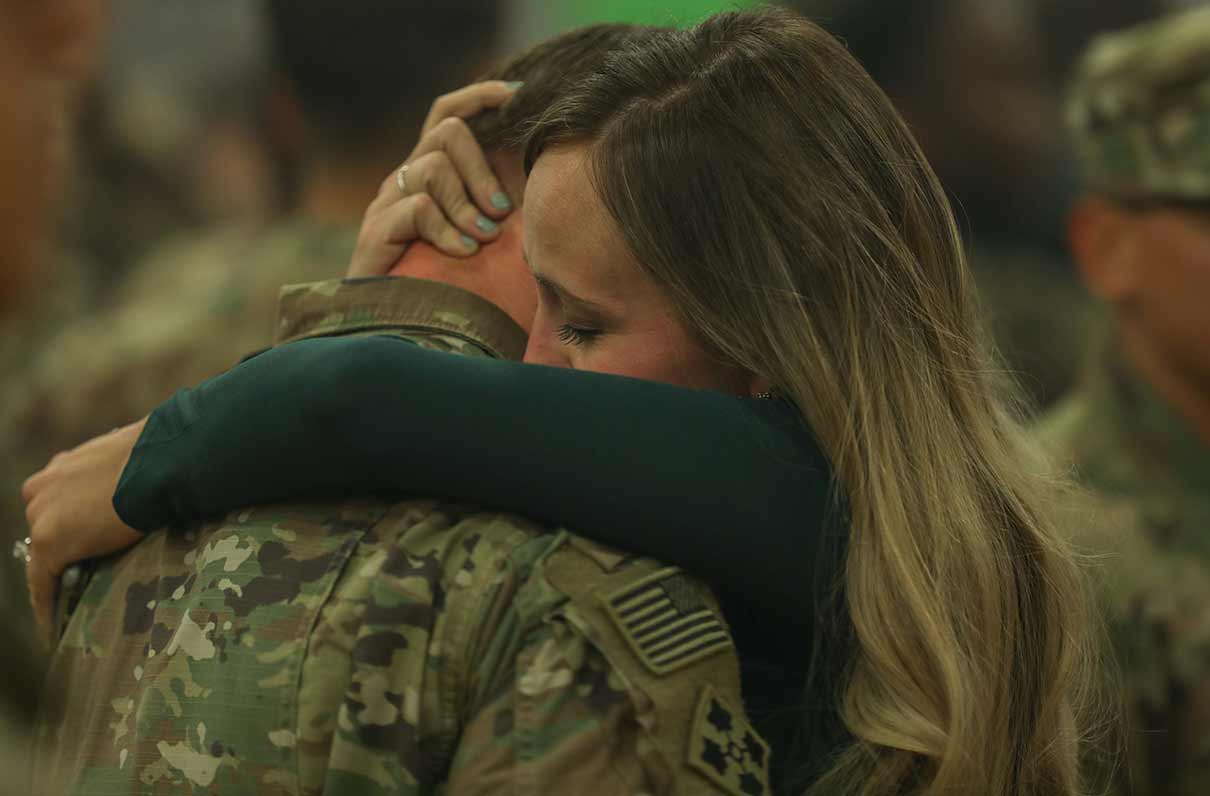This article by Richard Sisk first appeared on Military.com, the premier resource for the military and veteran community.
Military families can wait six months or more for slots to open in on-base child care facilities, service personnel chiefs testified Thursday, but a lawmaker said the Army might be low-balling the numbers.
The Navy has about 8,000 personnel on wait lists for child care, and "about 2,000 of them are in excess of 180 days," Vice Adm. Robert Burke, chief of Naval Personnel, said at a hearing of the House Armed Services Subcommittee on Military Personnel.
He said the Navy has to do a better job on access to child care and military family support across a spectrum of services or risk sending the signal "to our sailors and families that we just don't care."
[RELATED: MOAA’s Tracking 3 Key Issues (Including Child Care) During the Military Construction Budget Process. Here’s Why]
Lt. Gen. Thomas Seamands, the Army's deputy chief of staff for Personnel, said his service's wait lists for child care vary from location to location. In some cases, the waits are "nominal," but can be 100 days or more for Hawaii posts, he said.
"Well, that's actually not a great answer," Rep. Jackie Speier, D-California, told Seamands. She said she recently led a delegation to five military installations, including Fort Bragg, North Carolina, where military spouses complained of waits of more than a year for on-base child care.
Speier told Seamands to get back to the subcommittee at a later date with better data.
Air Force Lt. Gen. Brian Kelly, deputy chief of staff for Manpower, Personnel and Services, also promised better data but said Air Force families can face wait lists for child care that are "upward of 140 days."
He said that Joint Base Langley-Eustis in Virginia and Joint Base Elmendorf-Richardson in Alaska are especially problematic "in that there's not a lot of off-base child care available at those locations as well."
[RELATED: Some Military Families to Get More Cash for Child Care]
Marine Lt. Gen. Michael Rocco, deputy commandant for Manpower and Reserve Affairs, said that wait lists for child care are six months on average at Camp Pendleton, California; Quantico, Virginia; and bases in Hawaii.
"A lack of child care impacts unit readiness," he added.
Rocco said a factor in the wait lists at those locations is the high turnover rate of credentialed staff at the base day care centers. The bases are in high-income areas, and the day care staff can go to off-base facilities "and get paid a lot more money" than the military allows, he said.
Rep. Trent Kelly, R-Mississippi, the ranking subcommittee member, said "family services are directly related to retention," and the failure to deliver risks the departure of talented personnel whose skills are in demand in the private sector.
He joined Speier in noting the "severe shortage of quality military child care" with wait times of more than 180 days at many installations. "This is unacceptable," he said.
Burke said the Navy is committed to the Defense Department's policy to improve military family support in the effort to boost recruitment and retention.
"As important as the programs themselves is the manner in which we deliver our personnel services," he said. "What we ask of our sailors and families is tremendous.
"But if we do a poor job of delivering basic services to them," Burke said, "or we pile additional financial stress onto an already stressful event like a move because of our unimaginative processes, that sends a signal to our sailors and families that we just don't care. Customer service is clearly a key retention driver."
According to a Congressional Research Service report last August, the DoD "operates the largest employer-sponsored child care program in the United States, serving approximately 200,000 children of uniformed service members and DoD civilians, and employing over 23,000 child care workers at an annual cost of over $800 million."
Other articles from Military.com:
It's Official: Former Senator, WWII Vet Bob Dole Is Now An Army Colonel
F-16 Fighter Jet Crashes into California Warehouse, Pilot Ejects
Air Force Secretary Wants Pilots to Get More Simulator Time



